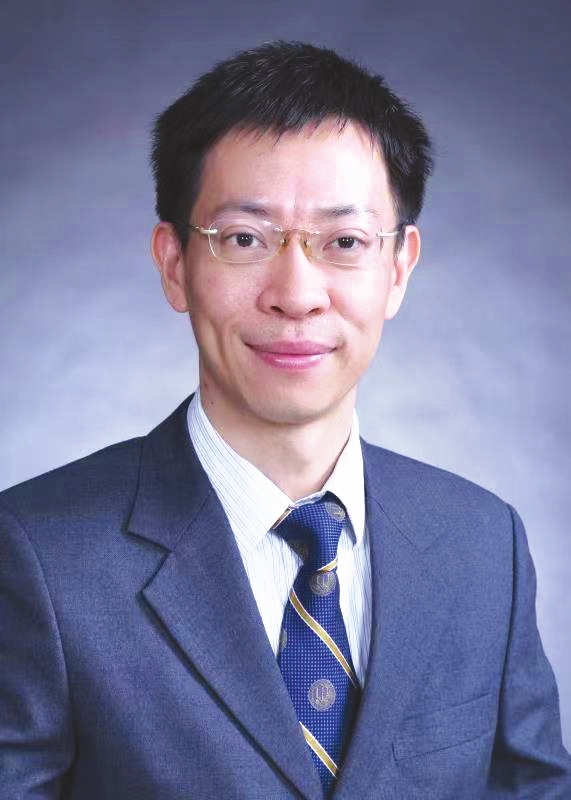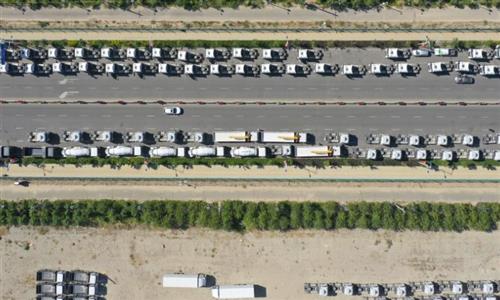China’s GDP growth rate is expected to reach around 5.3% in 2024 as new drivers sustain nation’s healthy development

A view of Guangzhou, capital of South China's Guangdong Province Photo: VCG
Editor's Note:
Selectively neglecting China's strong economic momentum and targeted policies, Western media outlets have been churning out a flurry of columns smearing the Chinese economy and hyping that the economy is losing steam. The reality is that they lack objective understanding of the Chinese economy. The Global Times is publishing a series of articles that reveal the true picture of China's economy, and explore the new drivers of China's sustained and healthy economic development.

Yu Miaojie Photo: Courtesy of Yu Miaojie
China's GDP growth rate is expected to reach 5.3-5.4 percent in 2024 despite headwinds and choppy waters in the international environment and challenging tasks in promoting reform and development at home, making the country the most important "engine room" for the global economy.
In order to maintain growth momentum, policy makers need to better coordinate development and security, while further deepening reform and expanding opening up. China needs to make progress in the building of a massive unified national market, which is an important growth driver of China's high-quality development.
Meanwhile, China needs to advance a broader agenda of opening up across more areas and in greater depth, and strive to build a new opening up pattern that benefits both the development of Chinese economy and world economy through the Belt and Road Initiative.
The remarkable resilience, potential and vitality of the Chinese economy as well as the sound fundamentals sustaining long-term economic growth remain unchanged. China's contribution to global GDP growth will likely continue to reach over 30 percent in 2024, making it the strongest growth engine in the world.
Sufficient policy room
The government work report, to be released during the upcoming "two sessions," is expected to implement the spirit of the Central Economic Work Conference (CEWC) held in December in a bid to consolidate stability through progress.
In other words, the government work report will coordinate development and security, supply-side structural reform and insufficient effective demand, strategic tasks of Chinese modernization, and reform and opening up so as to promote high-quality development of the economy.
As a deputy to National People's Congress, I will make proposals on dealing with insufficient demand and promoting supply-side structural reform. In order to drive up domestic demand, the CEWC pointed out that the country's proactive fiscal policies should be appropriately strengthened and their effectiveness improved, while prudent monetary policies should be flexible, moderate, precise, and effective.
It's projected that the government work report will set a deficit-to-GDP ratio of 3 percent for 2024. Given the increase in deficit, the issuance of local government special-purpose bonds of 3.8 trillion yuan ($527.9 billion) and expected fiscal revenue of 21 trillion yuan, the country's fiscal resources at disposal may reach 30 trillion yuan this year.
As for monetary policies, the People's Bank of China, the country's central bank, may continue to cut interest rates and reserve requirement ratios (RRR) in the first half this year, with the RRR forecast to cut by 25 basis points (bps) and medium-term lending facility to cut around 20 bps.
As for long-term interest rates, the central bank may extend asymmetric interest rate cuts, with one-year interest rate expected to cut by around 20 bps while five-year lending rate to see 10-bp cut.
New opportunities
Aside from increased policy support, China should continue to deepen reforms, of which nurturing new productive force is one of the most important tasks.
New productive forces are expected to become a key word for boosting China's economic development in 2024. Generally speaking, new productive forces mean advanced productivity freed from traditional economic growth models. It features high technology, innovations and aligns with the country's new development pattern, for example, new materials, aerospace industry, new energy vehicles and artificial intelligence.
China has great potential and strong comparative advantages in developing new productive forces, and it could become a new growth driver for the sustained and healthy development of the Chinese economy.
In order to boost the development of the new engine behind China's high-quality development, efforts are needed to strengthen support for both original innovations and application-side research and development in a bid to drive the development of new industries, new business models and new momentums.
In the process of developing new productive forces, we should realize that we do not simply seek GDP growth but also aiming for harmony between man and nature. Thus, we must step up efforts in developing green services industry, green energy and low-carbon supply chains to build a green and low-carbon circular economic development system.
While the economy is striving for a strong start in 2024, the Western media have been intent on hyping that the Chinese economy is losing steam. In fact, China's economy has developed through overcoming hardships, and has grown in braving challenges.
Although China faces internal and external challenges regarding its economic growth and future development, the economy grew by 5.2 percent in 2023, underscoring its resilience. Amid global economic recession, every country needs to strengthen economic security and economic independence. If the global economy continues to deteriorate, China's economy could still sustain benign development by relying on internal circulation and a unified national market.
China has the largest industrial system in the world with the most complete categories, which contributes to the resilience of the Chinese economy and ensures the economic stability and sustainability.
The author is president of Liaoning University and deputy to the National People's Congress.



